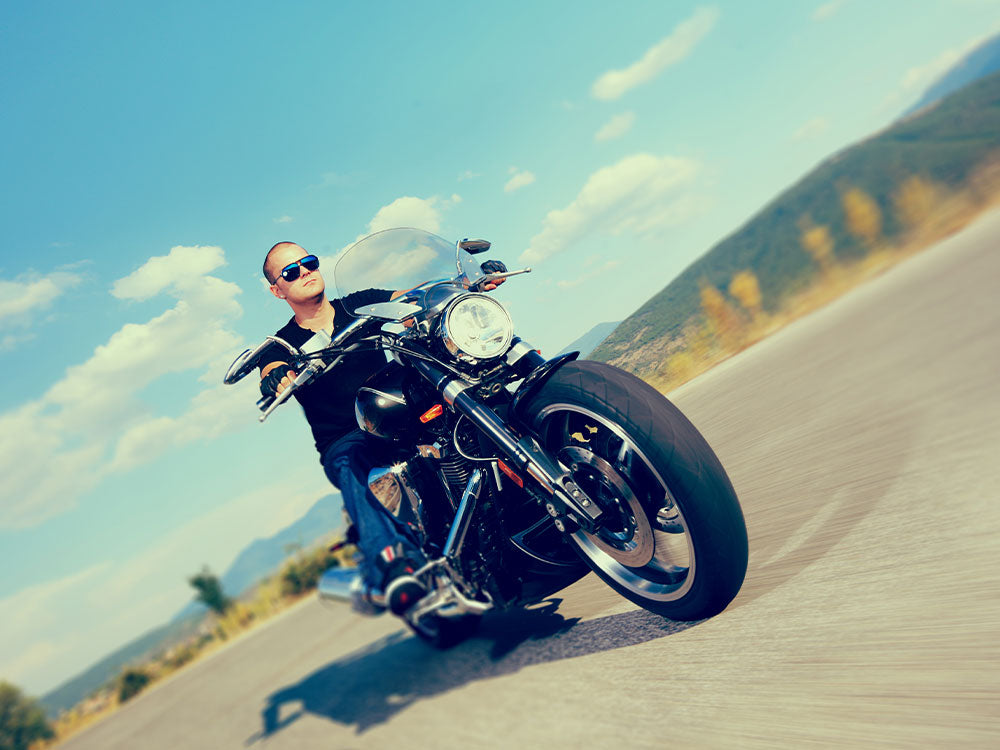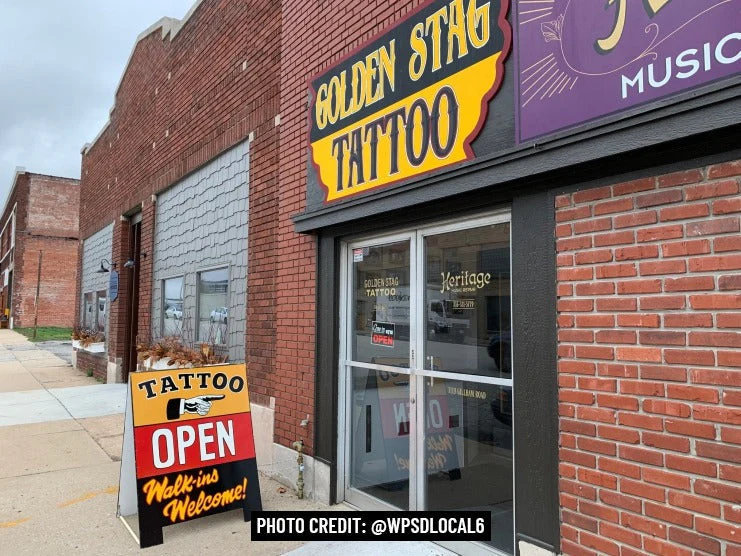
Most motorcyclists agree that long motorcycle trips offer a better riding experience. Long motorcycle rides give you an opportunity to enjoy nature, explore deserted roads and trails, and let you recharge your batteries. Once a rider gets on a motorcycle, the stresses and responsibility of daily life temporarily vanish. However, long motorcycle trips can be challenging as they require riders to stay awake and alert at all times.
Long motorcycle trips can be exhausting, especially if you ride without taking frequent breaks. No matter how hard you try, there will come a point where you will start to doze off. Becoming drowsy while riding a motorcycle can be dangerous as the risk of accidents, severe injuries, and death increases.
Here are a few tips to help you stay awake and alert during long motorcycle trips!
Table of Content
1. What Is Considered a Long-Distance Motorcycle Trip?
What is considered a long-distance motorcycle ride? On average, any motorcycle trip over 300-400 miles long is considered a long-distance trip. However, these figures are highly subjective.
Some riders can easily ride 600-700 miles in one day without getting sleepy or tired. Others can safely travel 400-500 miles in one day but need proper rest afterward. Average riders can ride about 200-300 miles in a single day.
However, other motorcycle enthusiasts may need several days to cover 300-400 miles due to their health, age, or lack of experience.
Before you embark on a motorcycle trip, determine what is the maximum distance you can realistically travel before you need to rest.
It is recommended you take breaks drinking water and stretching every 2-3 hours to stay active throughout your journey.
2. Difference Between Staying Awake & Alert
Although the terms “awake” and “alert” are often used synonymously, these two have different meanings.
Being awake means being conscious of your surroundings, while being alert means having situational awareness, quick response time, and control over your movements.
Drowsiness is often caused by poor sleeping habits, while inattentiveness has more to do with mental and physical fatigue. As riders become sleep-deprived, they being to feel more and more tired with time. Consequently, reflexes slow down and grip strength decreases. According to AAA Foundation of Traffic Safety, 9.5% of all motorcycle crashes in America are caused by fatigued motorcycle riders.
To ride a motorcycle safely on highways, a rider must be able to stay vigilant without falling asleep.
3. What Are Signs of Fatigue on the Road?
When you feel your eyes getting heavy and muscles becoming stiff, it is time to stop and rest. Putting off rest breaks when exhausted makes it more likely you may fall asleep. Look out for the following signs indicating sleep, fatigue, and lack of focus:
- Difficulty Concentrating on the Road - Eyes become heavy and tired, causing you to struggling watching the road
- Tunnel Vision - Also known as loss of peripheral vision, causing you to suffer from less situational awareness
- Mind Wandering - If mental focus shifts from watching the road to getting lost in your thoughts
- Missing Important Details - Difficulty reading or catching road signs, directions, warnings, and road hazards
- Difficulty Controlling Bike & Speed - Bike suddenly starts to feel heavier and becomes more difficult to control
- Reduced Hand-to-Eye Coordination - Difficulty maneuvering motorcycle, applying brakes, and pressing the clutch and throttle on time.
If you experience any of these symptoms, it is best to pull over, take a break, and rest before resuming your journey.
4. Ways to Stay Awake & Alert on the Road
Staying awake and alert during long motorcycle rides requires a lot of practice and stamina. Hence, it is best to start slow and set achievable riding goals for yourself.
4.1 Stay Fit
Staying awake and alert during long-distance motorcycle trips requires good physical fitness. You need strong upper body and core muscles to maintain your riding posture for long hours without getting tired. Add strength and endurance training in your daily work-out routine to develop stamina, strength, and fitness.
4.2 Take the Shortest & Scenic Route
If you are riding for fun, the adrenaline from your excitement over the trip will help keep you awake and alert for a long time. Try to travel on the shortest route with scenic views and less traffic.
Riding without any interesting sights and constant traffic jams can cause mental fatigue, which in turn results in a lack of focus, boredom, and sleepiness. Shorter routes will help you reach your destination faster which will lessen the risk of falling asleep and getting into an accident.
4.3 Research Places to Stop, Rest, and Nap
It is best to research for possible rest spots and hotels along your route in case you need a place to rest.
According to NASA’s research, 10-26 minute naps can help restore brain functions to optimum levels, boosting alertness, and reducing reaction time. Try to take short naps at rest stops.
4.4 Stay Hydrated
Dehydration can cause sleepiness and exhaustion, resulting in decreased alertness, especially when riding in warm weather. If you are an active rider, always carry a water bottle or a hydration pack.
4.5 Eat Light Meals
During long motorcycle trips, it is better to eat light meals and avoid large high-carb meals. Large meals with high glycemic levels can cause fatigue and energy crashes. While on the road, you will come across small diners and gas stations. However, most food available at these rest stops are rich in carbohydrates and can induce sleep. It is best to carry healthy snacks like wholegrain crackers, sugar-free protein bars, and nuts.
4.6 Caffeine Therapy
Coffee, energy drinks, and caffeinated drinks can help you stay awake and alert for a long time, but only if you do not drink caffeine every day. Otherwise, a lack of caffeine for a long time will cause you to feel sleepy and tired halfway through your journey.
4.7 Get Enough Rest
Lack of sleep is another common cause of fatigue and inattentiveness. It is unsafe for riders with poor sleeping habits and long working hours to travel on a motorcycle for several hours.
According to a study published by the National Library of Medicine, “Insufficient sleep is defined as less than 7 hours a day.”
Make sure you sleep at least 8 hours the night before you plan to travel.
4.8 Start Your Journey Early
Riders are most alert right after they wake up, so it is best to start your journey an hour after waking up. Do not plan any stressful tasks or intense workouts the day you plan to ride. Try to conserve as much energy as possible. Starting your motorcycle trip early might help you reach your destination or rest stop before evening.
4.9 Ride a Comfortable Motorcycle
If your motorcycle does not offer suitable comfort for a long-distance trip, borrow a more comfortable motorcycle from a friend or get a rental. Tourers and cruisers offer the most comfort for long-distance trips.
4.10 Modify Your Motorcycle for Better Comfort
If you want to ride your motorcycle, consider modifying it to improve its comfortability when traveling long distances. Add a more comfortable seat, change the riding position by adjusting the handlebars and foot rests.
4.11 Take Stretching Breaks
Stop frequently for stretch breaks. Stretching can help improve blood circulation to the brain and muscles, increase production of healthy neurochemicals, reduce stress, and improve concentration and alertness.
4.12 Listen to Music to Stimulate Your Senses
Listen to loud music to stimulate your senses but do not use earplugs that block any surrounding noise.
Loud music with fast beats and tempos triggers dopamine release that may help you stay awake and alert during long motorcycle trips. However, loud music will have little effect on your alertness if you are used to hearing high-volume music.
4.13 Do Not Use Cruise Control
Using cruise control will not stimulate your senses enough to improve alertness. According to a recent study conducted in France, cruise control slows down reaction time and increases the likelihood of falling asleep. Riders who rely on cruise control often feel drowsy and have delayed reactions when pressing the brakes or dodging other motorcyclists.
4.14 Ride With Experienced Riders
Riding with friendly company will keep the trip interesting and help you stay awake and alert. But it is important that you ride with experienced riders who have the stamina to travel long distances on a motorcycle.
4.15 Talk to Yourself
If you are riding alone, talk to yourself. Talking works your brain, keeping it active and focused.
4.16 Do Not Listen to Anything Other Than the Road
Do not listen to audiobooks and podcasts during long motorcycle rides as they will cause your mind to relax and divert your attention away from the road.
4.17 Avoid Alcohol
Alcohol can disrupt your sleeping habits, affect your mental focus, and cause drowsiness. Even a small amount of alcohol before riding can be dangerous as it can temporarily cause you to become mentally impaired.
4.18 Taking Meds? Check with your Doctor
If you are on medication, it is best to ask your doctor whether you can ride a motorcycle safely while taking a prescription. Some medicines, including painkillers, anti-allergy medicines, antidepressants, and muscle relaxants can cause sleep, blurred vision, dizziness, and nausea.
5. Takeaway
Motorcycles are thrilling, adventurous, and fun, but they are not the safest mode of transportation, especially when planning a long-distance trip. Follow the tips mentioned above to stay awake and alert, minimizing the risks of accidents and injuries.













Leave a comment
All comments are moderated before being published.
This site is protected by hCaptcha and the hCaptcha Privacy Policy and Terms of Service apply.